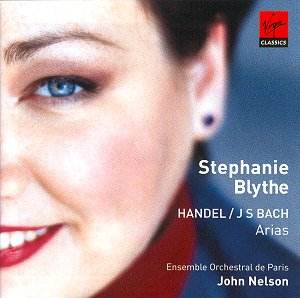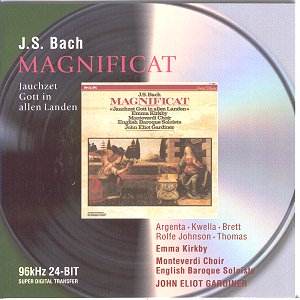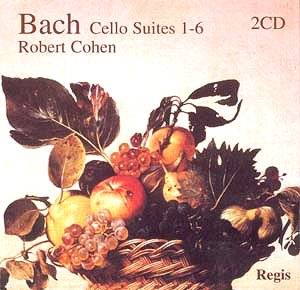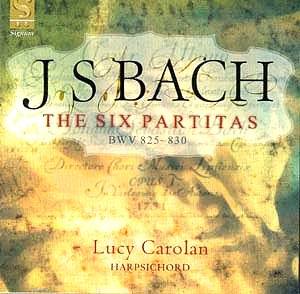 Composer: BACH, GEORG FRIEDRICH HANDEL
Composer: BACH, GEORG FRIEDRICH HANDEL
Label: VIRGIN VERITAS 7243 545475 2 2
Performers: Stephanie Blythe (mezzo-soprano), Ensemble Orchestral de Paris, John Nelson
Rec: December 2000, Eglise Notre Dame du Liban, Paris, France
Total Duration: [71.45]
In this ambitious debut recital recording, Stephanie Blythe offers an engaging survey of operatic and sacred arias from the Baroque canon, showcasing both Handel’s exuberant theatricality and Bach’s deeply introspective spirituality. Blythe’s selection reflects an understanding of the stylistic breadth of the Baroque era, but it also poses questions regarding the appropriateness of her vocal approach to the varied demands of the repertoire.
The program begins with selections from Handel, where Blythe’s voice—sweet yet occasionally overbearing—navigates the dramatic contours of “Awake, Saturnia” from Semele and “Al lampo dell’armi” from Giulio Cesare. In these arias, Blythe’s dynamic range is put to good use; her interpretation of “Frondi tenere” is characterized by a certain buoyancy, yet it is marred by a tendency towards a vigorous vibrato that, while expressive, can lead to an obscuring of the melodic line. This is particularly true in the brisk passages where agility is paramount—Blythe’s execution here can feel like a forced display rather than a natural extension of the melodic phrase.
In direct contrast, the sacred arias from Bach provide a different canvas for Blythe’s artistry. Her rendition of “Erbarme dich, mein Gott” from the St. Matthew Passion reveals a more reflective side to her singing. Yet, the emotional gravitas called for in this aria seems elusive; her interpretation lacks the profound stillness that can transform this piece into a moment of transcendent beauty. Instead of embodying the character’s plea with a long, aching sigh, Blythe often applies a force that, while intended to convey depth, ultimately detracts from the aria’s inherent poignancy.
Blythe’s treatment of vibrato is a recurring concern throughout the album. In her performance of “Agnus Dei” from the Mass in B Minor, she demonstrates a more controlled use of vibrato, which allows the lush harmonies to shine through. However, in shorter, more intricate passages, such as “Priva son d’ogni conforto” from Giulio Cesare, her tendency to emphasize every note with a quivering vibrato can lead to a lack of clarity and focus. It is as if she is in a constant state of striving for emotional impact, which occasionally overshadows the music’s inherent lyricism.
The engineering quality of this recording is commendable, capturing the warmth of Blythe’s voice and the vibrant textures of the Ensemble Orchestral de Paris under John Nelson’s direction. The acoustic space of Eglise Notre Dame du Liban lends an appropriate resonance, heightening the emotional stakes of the music. Yet, one might argue that the engineering choices also contribute to Blythe’s more forceful moments, amplifying the vibrato and making it more pronounced than it might be in a more intimate setting.
Historically, the pieces selected for this recording represent significant milestones in the development of Baroque music. Bach and Handel, contemporaries in the late 17th and early 18th centuries, each brought their own distinct approach to vocal writing. Handel’s operas often call for a more dramatic and imposing vocal presence, which Blythe navigates with relative success. In contrast, Bach’s sacred works demand a more contemplative and nuanced approach, where the singer must embody not just the melodic line but also the theological undercurrents that define the music.
In conclusion, while Stephanie Blythe possesses a rich and attractive voice that holds great potential, her approach to this diverse repertoire raises questions about stylistic choices and interpretive depth. The recording serves as an entry point for those new to Baroque music, but for seasoned listeners, it may leave one longing for a more historically informed and emotionally resonant interpretation. As such, this disc stands as a testament not only to Blythe’s vocal capabilities but also to the ongoing dialogue about performance practices within the Baroque tradition.



